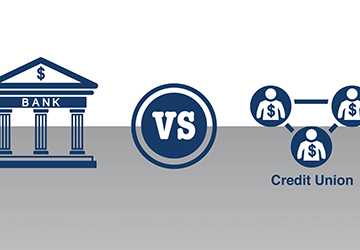
Building Credit: Getting Started Strategies for Young People
Loans are critical for young people to build a solid financial foundation. A good credit score can lead to numerous economic opportunities, such as loans, renting an apartment, and finding a job. Here are some effective strategies for young people who want to build credit and improve their credit scores.

Understand Credit and its Importance
What is credit?
Credit means your ability to get a loan and repay it on time. It's included in your credit score, which lenders use to evaluate your creditworthiness.
Why are construction loans necessary?
Establishing credit is critical for the following reasons:
- Young people build credit to get cheaper loan rates.
- Make renting an apartment or buying a house easier.
- Employers frequently conduct checks during the recruitment process.
Credit Strategies for Beginners
Pay Your Bills on Time
One of the most effective credit strategies for beginners is to pay bills on time. Late payments can negatively impact your credit score. Set up alerts or automatic payments to ensure timeliness.
Keep Credit Utilization Low
The credit utilization ratio is the ratio of your credit card balance to your credit limit. For young people looking to take out a loan, it is essential to keep this ratio below 30%; this demonstrates responsible credit management by the lender.
Avoid Applying for Multiple Credit Accounts
When you start a credit check, you should avoid applying for multiple credit accounts. Each application results in rigorous inquiries that may lower your credit score. Focus on effectively managing one or two credit accounts before looking for others.
Start credit history open a credit card
One of the most common ways young people build credit is by getting a credit card. You can do this:
- If you need more credit history, apply for a secured credit card.
- Use your credit card to make small purchases and pay your remaining monthly balance in full.
Become an Authorized User
Another effective strategy for young adults to build credit is to become an authorized user on a family member's credit card; this allows you to benefit from the exemplary credit habits of the primary cardholder.
Monitor and Manage Your Credit Score
Check Your Credit Report Regularly
Young people with credit access should check their credit reports regularly to ensure accuracy and identify any discrepancies. You are entitled to a free annual report from the three major credit reporting agencies.
Disputed inaccuracies
If you notice any inaccuracies on your credit report, dispute them immediately. This step is critical for young people to establish and maintain good credit.
Long-term credit strategy
Create Multiple Loan Types
As you become more familiar with loan management, consider diversifying your loan portfolio with different types of loans, such as B. Credit cards, instalment loans, and private client accounts; this can enrich your credit file and demonstrate your ability to manage different types of credit.
Keep old account
The length of your credit history affects your credit score. Young people building credit should keep older accounts, even inactive ones, to maintain a more extended credit history.
Purpose of rent payment
Report on rent payments
Reporting rent payments can be a strategic move for young people to build credit. Several services make reporting rent payments to credit bureaus easier, creating a payment history that positively impacts one's credit score.
Negotiate with landlord
Talk to your landlord about reporting your rent payments. Many property management companies are willing to report on-time payments, which can significantly improve your credit score.
Secured Loans as Credit Building Tools
Apply for a Secured Loan
Secured loans backed by collateral are another fruitful credit-building strategy for young people. Secured loans typically have lower interest rates and are easier to obtain with limited credit.
Secured loan management
Here's how to use secured loans effectively to build your credit:
- Regular payments: Make sure all payments are made on time.
- Monitor loan terms: Understand the terms and conditions to avoid penalties.
- For essential purchases: Use the loan to avoid unnecessary debt.
Credit Building Plan
Join a credit union
Credit unions often offer credit-building programs aimed at young adults. These programs can include secured credit cards, credit-building loans, and financial education resources and provide young people with comprehensive credit-building support.
Participate in Credit Builder Loans
The express purpose of credit-building loans is to help individuals obtain credit. With these loans, the amount you borrow remains in a savings account as you make payments. Funds will be released upon completion, and you will have established a good payment history.

Financial literacy and education
Take a financial education class
Improving financial literacy is critical for young people seeking to build credit. Take financial education classes covering budgeting, saving, and credit management. These courses can provide valuable knowledge and skills in managing credit hours effectively.
Use online resources
Many online resources, including webinars, articles, and financial planning tools, are available to help young people build credit and understand the complexities of credit management. Taking advantage of these resources can significantly improve your financial acumen.
Explore Alternative Credit Data
Utility and telecom payments
Alternative credit data such as payments (such as utility and telecommunications company payments) may be reported to credit reporting agencies. Ensuring these bills are paid on time for young people building credit can help create a good credit history.
Subscription service
Some services (e.g., Netflix and Spotify) allow subscription payments to be reported to credit reporting agencies. By ensuring these payments are made on time, young people taking out loans can further improve their credit profile.
I'm Seeking Professional Advice
Advice from a Financial Advisor
Working with a financial advisor can provide young people with tailored credit-building strategies. Advisors can provide insights into credit management, loan consolidation and long-term financial planning.
Attend a Financial Planning Seminar
Attend workshops and seminars on building credit and financial planning. These events provide practical tips and strategies to help you navigate the complexities of credit management.
Leveraging technology for credit management
Credit monitoring apps
For young adults building credit, credit monitoring apps can help track their credit scores and receive notifications of changes. These apps provide insights about your credit score and tips on improving it.
Budget tool
Many digital tools and applications support budgeting and financial planning. These tools can help young people build credit, maintain financial discipline, and achieve their credit-building goals.
Conclusion
Building credit is critical for young people embarking on their financial journey. These entry-level credit strategies can build a solid credit history and set you up for future economic success. Consistency and prudent credit management are also critical for developing and maintaining good credit over the long term.





